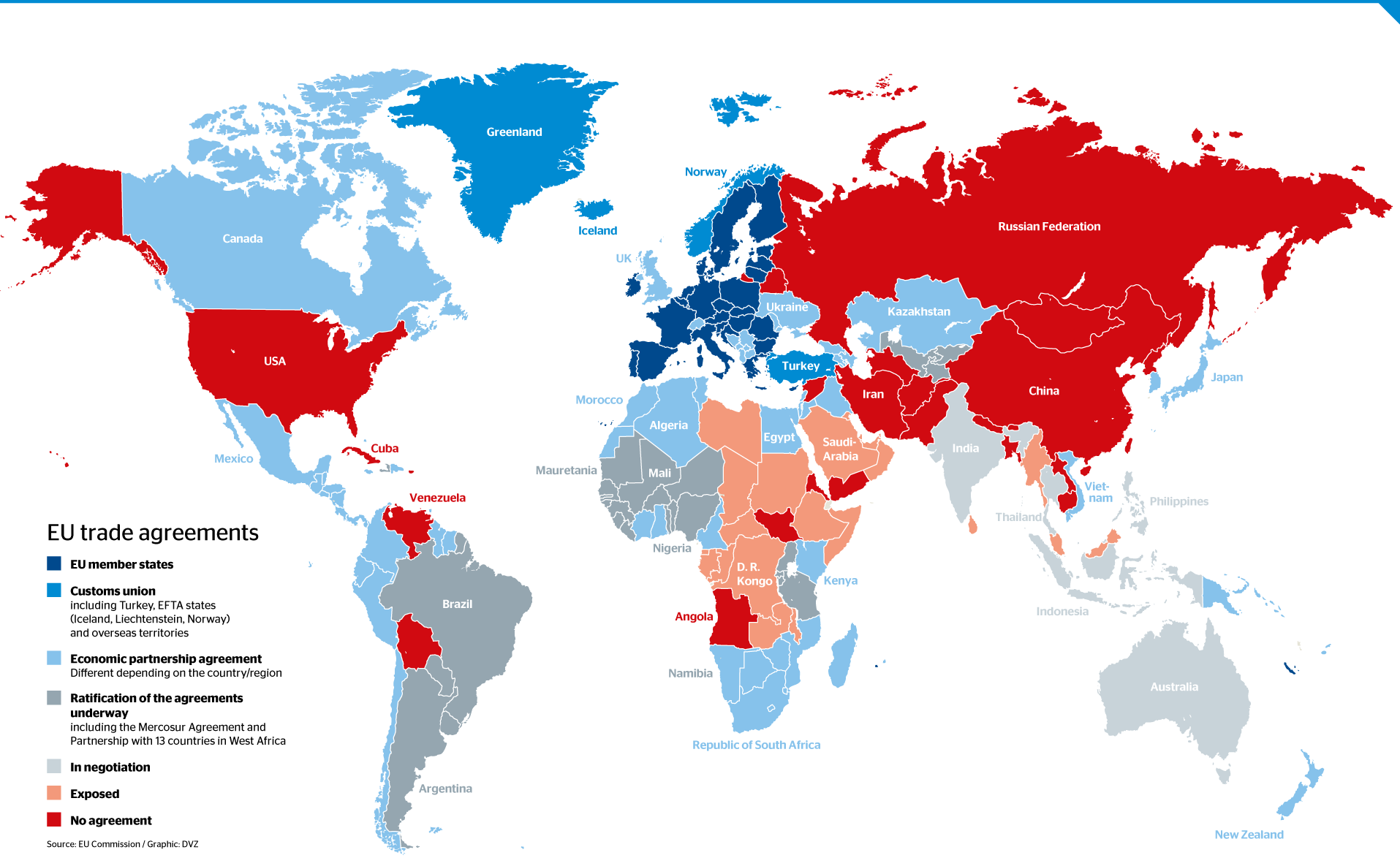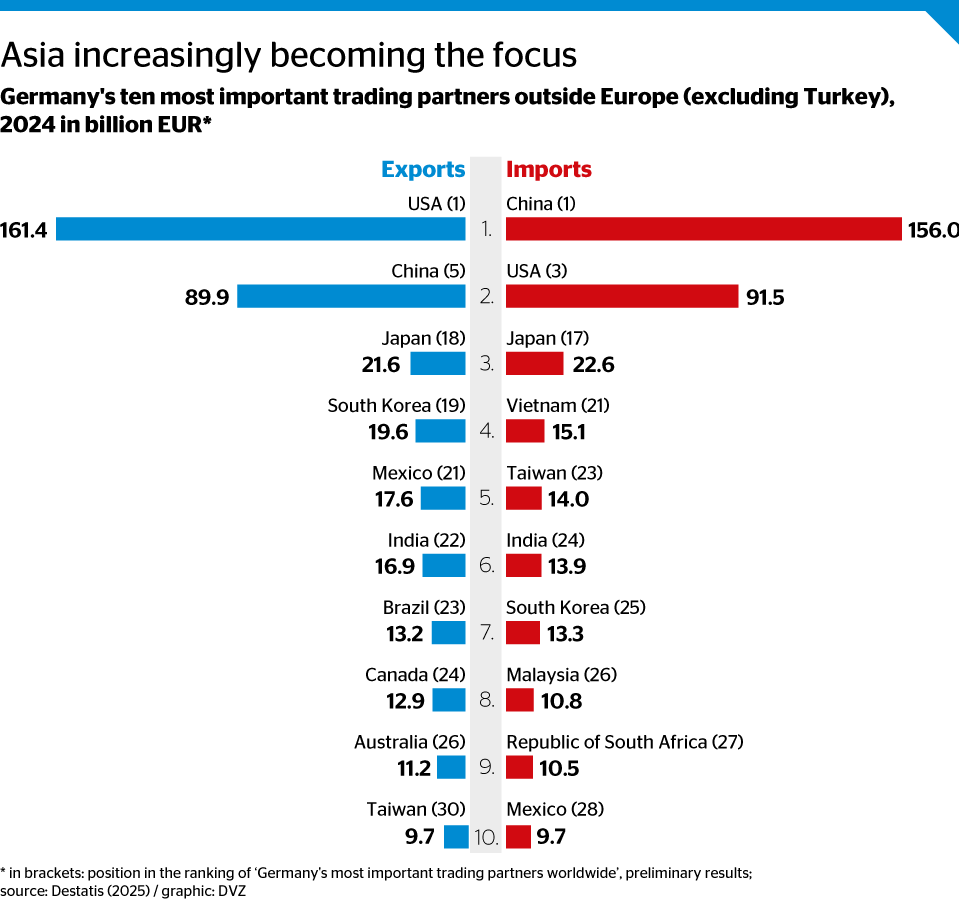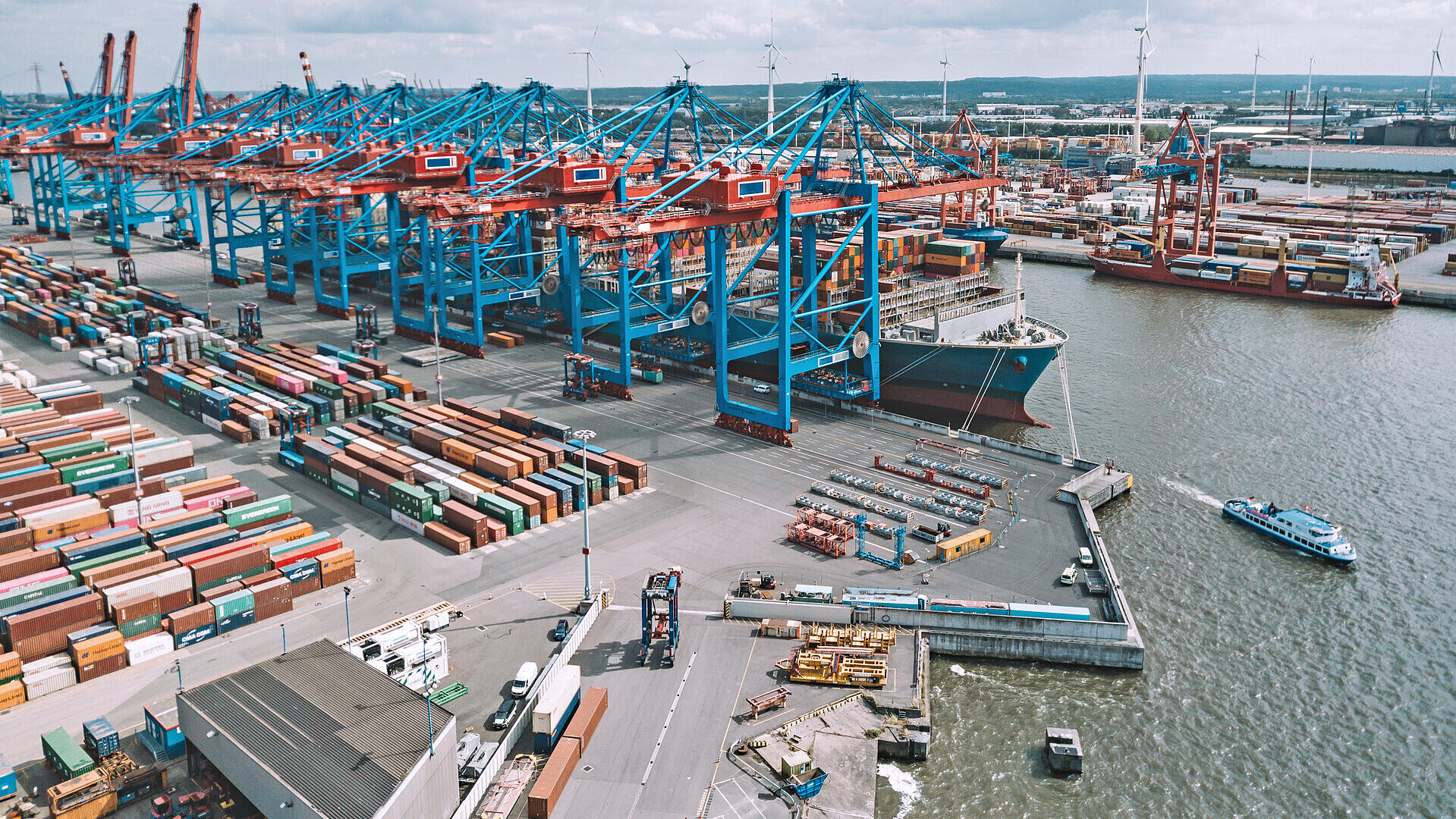
Global trade at a turning point

Companies are concerned about the rising tariffs worldwide. New trade agreements between the EU and other countries could mitigate the negative consequences. An export nation like Germany in particular would benefit from this.
There has never been so much movement in the negotiations between countries to reshape trade relations. In view of the spiral of tariffs triggered by US President Donald Trump, voices are also becoming louder in the EU to conclude new trade agreements. Germany is heavily dependent on global trade. Foreign markets are particularly important for the automotive industry.
However, exports are also an elementary part of the business model for other sectors – and therefore the basis for local prosperity. Foreign trade statistics clearly show how important the EU customs union is for German companies. By far the most exports are made to EU countries. If the Economic Community did not exist, there would be a huge risk that duties would also increase within the EU – a horror scenario for export-oriented companies in Germany.
In addition to the EU states, however, there are other important trading partners for Germany – including many that achieve above-average economic growth. They therefore represent attractive target markets. However, the EU has by no means concluded trade agreements with all of these countries.
Economists from Germany and France are calling on the EU to ‘take a leading role in defending the global trading order’. The more open the global economy remains despite US tariffs, the lower the cost for European economies. The economists consider it likely that the US base tariff of 10 percent will become permanent. However, the economic consequences will be more severe for the US than for the EU. (cd/rok)





